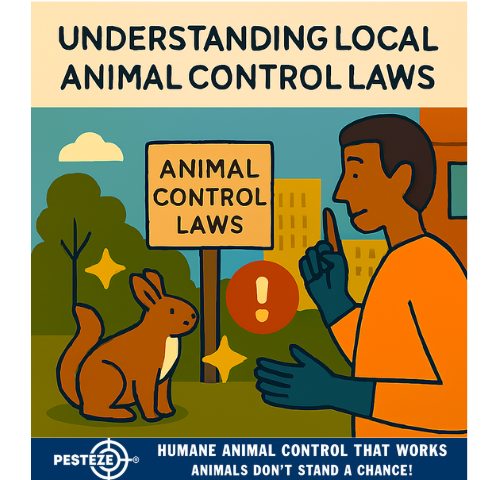UNDERSTANDING LOCAL ANIMAL CONTROL LAWS

UNDERSTANDING LOCAL ANIMAL CONTROL LAWS
SUMMARY
Local animal control laws are designed to protect public safety, promote responsible pet ownership, and ensure humane treatment of animals. These regulations vary by city and county, covering everything from pet licensing to leash requirements and wildlife management. This guide explains the key components of local animal control laws, how to stay compliant, and where to find official ordinances. Understanding these rules helps you avoid fines and contribute to a safer, more respectful community.
FEATURES
-
Pet Licensing Requirements: Most municipalities require dogs and sometimes cats to be registered and tagged.
-
Leash and Containment Laws: Pets must be restrained in public spaces and kept within property boundaries.
-
Vaccination Mandates: Rabies and other vaccines are often legally required for pets.
-
Noise and Nuisance Regulations: Excessive barking or disruptive behavior may result in citations.
-
Wildlife Interaction Rules: Guidelines exist for reporting or handling wild animals like raccoons or foxes.
-
Penalties for Non-Compliance: Fines, impoundment, or legal action may follow violations of animal control laws.
GUIDE DESCRIPTION
Animal control laws serve as a framework for maintaining harmony between pets, wildlife, and people in urban and suburban environments. These laws are enforced by local agencies and vary widely depending on your location.
One of the most common requirements is pet licensing. Many cities mandate that dogs—and in some cases, cats—be registered with the local government. This includes wearing a tag and updating records annually. Licensing helps reunite lost pets with owners and ensures vaccination compliance.
Leash laws are another critical component. In most jurisdictions, pets must be leashed in public areas and confined to your property when at home. This prevents accidents, fights, and unwanted interactions with other animals or people.
Vaccination mandates, especially for rabies, are legally enforced in many areas. Proof of vaccination is often required for licensing and may be requested during animal control investigations.
Noise ordinances address issues like excessive barking, which can disturb neighbors and lead to complaints. Owners are responsible for managing their pets’ behavior and may face fines if disturbances persist.
Wildlife regulations also fall under animal control. If you encounter a wild animal such as a fox, raccoon, or stray dog, you’re typically required to report it to local authorities rather than attempt removal yourself. This ensures safe, humane handling and prevents ecological disruption.
Violating animal control laws can result in penalties ranging from warnings and fines to pet impoundment or court action. Staying informed and compliant helps protect your pets, your neighbors, and your legal standing.
To find specific laws in your area, consult your city or county’s municipal code or contact your local animal control office.
- Amy Chang


Comments 0